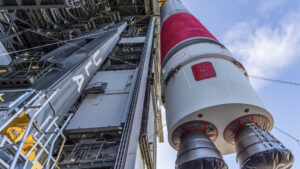It would be easy to be cynical about a German-French startup named The Exploration Company, which aims to build an increasingly sophisticated lineup of spaceships that could one day launch astronauts into orbit.
After all, European space startups don’t have the greatest track record, and even with billions of dollars, one of the world’s leading aerospace companies, Boeing, has failed so far to deliver a fully space-worthy human vehicle. Space is hard; human spaceflight is harder. So when a European startup shows up with grandiose plans, one’s natural inclination might be to dismiss them.
That’s more or less how I felt before I spoke with the founder of The Exploration Company, Hélène Huby, this week. She was surprisingly frank about the difficulties in pulling this off and shrewd about her political assessment of why now might just be the time for a new generation of European spacecraft.
“I realize this is a very, very big challenge,” she told Ars.
Making the leap from Airbus
An economist by training, Huby joined the European aerospace firm Airbus in 2013, working various jobs, including space strategy, before becoming the company’s vice president for the Orion spacecraft’s service module. As part of NASA’s Artemis Program to return humans to the Moon, Europe is building the service module that provides power and propulsion to the Orion capsule.
The service module is based on a spacecraft previously built by Airbus for the European Space Agency known as the Automated Transfer Vehicle, or ATV. This ATV spacecraft flew cargo to the International Space Station through 2015 before its retirement. Huby said it was cool to participate in NASA’s grand exploration program but said Europe’s role was also frustrating. Why? Because the service module was essentially based on 20-year-old technology, and it wouldn’t be reused. In some sense, working on the service module felt like looking into the past rather than working toward the future.
